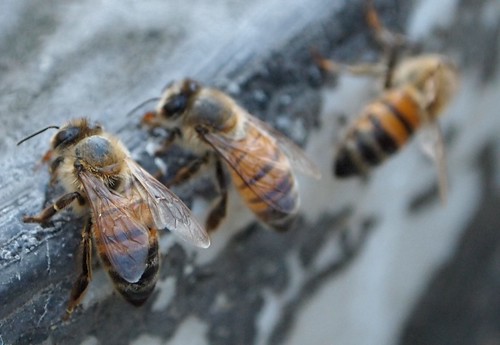It doesn’t matter how old you get, there is always something new to learn. Sometimes these new things are words or concepts you have heard all your life, but perhaps you never understood. Learn Something New is a series that will highlight some of the things I learn, big and small in the coming days. — Douglas
Univoltine/Bivoltine/Multivoltine/Voltinism
I’m fairly knowledgeable about bees and other insects, but I’m reading The Bee-Friendly Garden by Kate Frey and Gretchen LeBuhn right now (full review coming soon) and came across a series of unknown words within the 20 pages. While I was probably aware that there were bees and insects that raised 1, 2 or multiple generation per year, the terms themselves were new to me. Of course, the names themselves are fairly easy to decipher if you know your Greek and Latin root words, but not the deeper scientific meanings.
Uni=1, Volta=times (similar to the Italian word, volta, as in Una prima volta or Once Upon a Time).
In this case, the words relate directly to how many broods or generation of organism creates in one calendar or seasonal year.
This is just one situation where knowing the base meaning of the word gives little to no indication of the scientific usage of the word. Good to know!

From Wikipedia…
Voltinism is a term used in biology to indicate the number of broods or generations of an organism in a year. The term is most often applied to insects, and is particularly in use insericulture, where silkworm varieties vary in their voltinism.
- Univoltine – (adjective) referring to organisms having one brood or generation per year
- Bivoltine – (adjective) referring to organisms having two broods or generations per year
- Multivoltine – (adjective) referring to organisms having more than two broods or generations per year
- Semivoltine – (adjective) referring to organisms whose generation time is more than one year
These terms will certainly be something I remember in further reading about bees and other insects and in discussions with my naturalist friends. Just knowing the meaning of the words opens up a new avenue of knowledge and will color my future reading, research and cultivation of bees in my own garden. I don’t have hives, but I do have quite a collection of bees in my garden and knowing which one’s raise multiple broods — and when they do it — will help me to help them along.
Previously on Learn Something New:
